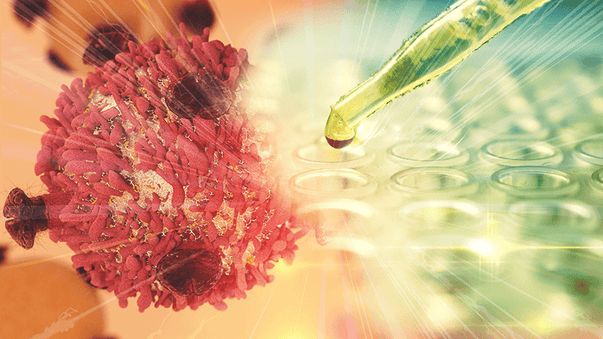Enhancing Memory with Implantable Neural Prosthetics

The prosthetic memory research results released by Wake Forest Baptist Medical Center and USC (see below) indicate that brain implants could soon improve human memory.
“These results demonstrate the facilitation of memory encoding which is an important feature for the construction of an implantable neural prosthetic to improve human memory,” reads the research paper published by the scientists.
“This is the first time scientists have been able to identify a patient’s own brain cell code or pattern for memory and, in essence, ‘write in’ that code to make existing memory work better, an important first step in potentially restoring memory loss,” said Robert Hampson, professor of physiology/pharmacology and neurology at Wake Forest Baptist.
“We showed that we could tap into a patient’s own memory content, reinforce it and feed it back to the patient,” continued Hampson. “Even when a person’s memory is impaired, it is possible to identify the neural firing patterns that indicate correct memory formation and separate them from the patterns that are incorrect. We can then feed in the correct patterns to assist the patient’s brain in accurately forming new memories, not as a replacement for innate memory function, but as a boost to it.”
Before delving into hard science news, one practical tip: It appears that a daily regimen of the non-prescription nonsteroidal anti-inflammatory drug ibuprofen can prevent the onset of Alzheimer's disease.
Prosthetic memory study achieves promising results. Scientists at Wake Forest Baptist Medical Center and the University of Southern California (USC) have demonstrated the successful implementation of a prosthetic system that uses a person’s own memory patterns to facilitate the brain’s ability to encode and recall memory. In a study published in Journal of Neural Engineering, the researchers describe a proof-of-concept system for restoring and improving memory function via facilitation of memory encoding using the patient's own hippocampal spatiotemporal neural codes for memory. The scientists report that, in a group of patients who participated in the study, short-term memory performance showed a 35 to 37 percent improvement over baseline measurements.
Synthetic biology breakthrough toward new cancer therapies. Researchers at Northwestern University have developed a new synthetic biology technique that could boost our ability to re-engineer cells to fight diseases such as cancer and diabetes. To insert a control circuit into cells, scientists use viruses as a vector. The problem is that cells become infected in a highly variable manner, making their resulting gene expression very unpredictable. The new technique, described in a research paper published in Nature Biotechnology, could give researchers more control over the process than ever before. The scientists are persuaded that these research results represent a breakthrough advance toward reliable, robust therapies based on synthetic biology and genetic engineering.
Does quantum computation happen in the brain? An international collaboration of researchers led by UCSB will investigate the brain’s potential for quantum computation. The QuBrain collaboration at UCSB, with $1.2 million in grant funding over three years from the Heising-Simons Foundation, will study biological components and key mechanisms that could provide the basis for quantum processing in the brain, and seek experimental evidence to answer whether we might be quantum computers. Besides fundamental science, QuBrain research could shed new light on how the brain works, which might lead to novel mental health treatment protocols.
‘Nanodrills’ penetrate cellular membranes to deliver drugs. Scientists at Oregon State University and Oregon Health and Science University have created new nanomaterials able to cross cell membranes, establishing a novel platform for the intracellular delivery of molecular drugs and other cargo. A research paper published in Journal of Controlled Release indicates that cell-penetrating self-assembling peptide nanomaterials (CSPNs) can self-assemble into “nanodrills” able to deliver therapeutic agents across biological barriers.
Noninvasive transcranial stimulation can prevent migraine attacks. Researchers at the Mayo Clinic have found evidence that single-pulse transcranial magnetic stimulation can prevent migraine attacks. A study published in Cephalalgia shows that the treatment reduced the frequency of headache days in test patients by about three days per month, and 46 percent of patients had at least 50 percent or less migraine attacks per month. The treatment, which has been cleared by the US FDA for the acute and preventive treatment of migraine, us safe, easy to use, and noninvasive.
Study shows promising response rate to pediatric cancer drug. Scientists at UT Southwestern Medical Center have found indications that a new cancer drug is remarkably effective against pediatric tumors. Larotrectinib is the first cancer drug to receive FDA breakthrough therapy designation for patients with a specific fusion of two genes in the cancer cell, no matter what cancer type. In a study published in The Lancet Oncology, the researchers report that 93 percent of tested pediatric patients responded to the drug.
More Articles
Don't miss a beat! In our Pulse Newsletter, Thrivous curates the most important news on health science and human enhancement, so you can stay informed without wasting time on hype and trivia. It's part of the free Thrivous newsletter. Subscribe now to receive email about human enhancement, nootropics, and geroprotectors, as well as company news and deals.
Read more articles at Thrivous, the human enhancement company. You can browse recent articles in Thrivous Views. See other Pulse Newsletter articles. Or check out an article below.
-
Controversy About Brain Preservation
Most unfortunately, MIT has decided to withdraw from a collaboration with Nectome, the research company that won the Brain Preservation ...
-
DNA Nanotechnology for Cancer Therapy
In recent bioscience and medical news, the biological computing research results released by the University of Delaware (see below) are worth ...


